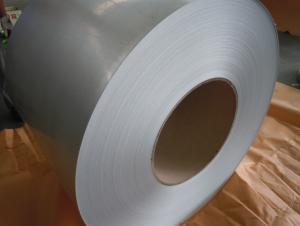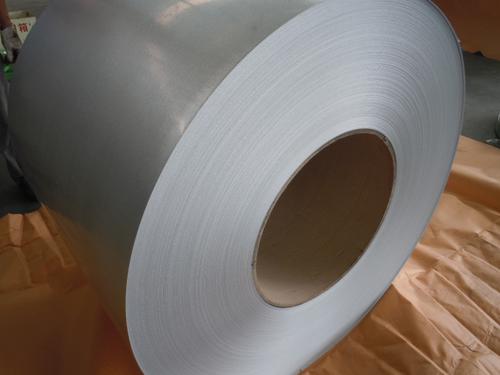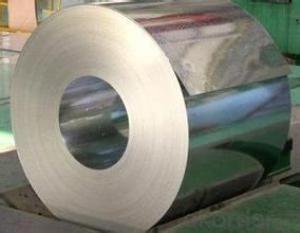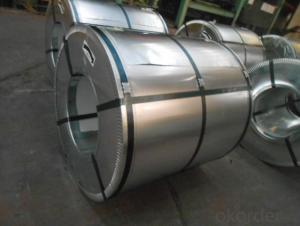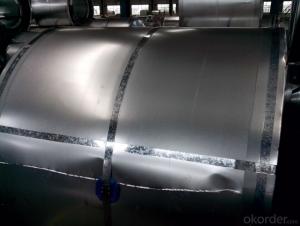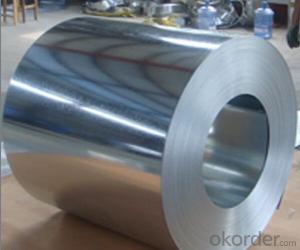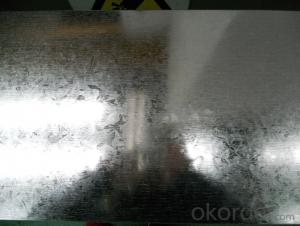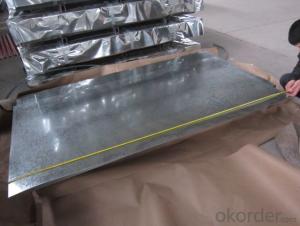Hot Dipped Galvalume Steel Coil
- Loading Port:
- China Main Port
- Payment Terms:
- TT OR LC
- Min Order Qty:
- -
- Supply Capability:
- -
OKorder Service Pledge
Quality Product, Order Online Tracking, Timely Delivery
OKorder Financial Service
Credit Rating, Credit Services, Credit Purchasing
You Might Also Like
Aluzinc Steel Coil
Steel Grade & Standard:G550
Spangle:Minimized Spangle
Aluzinc Coating Mass:AZ40
Surface Treatment:Chromated, Unoiled, NonSkinpassed, Anti-Finger Print
- Q: What are the dimensions of steel coils used in the storage system industry?
- The dimensions of steel coils used in the storage system industry vary depending on the specific requirements of the storage system and the industry it is used in. However, common dimensions for steel coils used in storage systems can range from 0.15mm to 3.5mm in thickness, and from 600mm to 2100mm in width. The length of the coils can also vary, typically ranging from 1000mm to 6000mm.
- Q: Why is steel used for building purpose and not any other metal?
- Steel is used for building purpose because of its steadfast quality. The steel has an intense resistance which renders it completely immune to dangers of corrosion, climatic variations, weather fluctuations and other environmental hazards, thereby making it the most suitable metal for exterior surface of the building. Internal structure of steel also helps the building to have strength at the core which enables it to stand erect for a longer time.
- Q: i have recently gotten into DIY and am planning on making my own knife. My question is what kind of steel would be good to use for heat treating if i plan on using water and not oil in the process.
- Go to junkyard get old leaf spring, cut out knife, start sharpening. Why waste time heat treating steel when the spring steel as already be done.
- Q: How are steel coils processed into finished products?
- Steel coils are processed into finished products through a series of steps, including flattening, cutting, shaping, and treating. First, the coils are unrolled and flattened to obtain a flat sheet. Then, they are cut into desired lengths and shapes using various cutting techniques. Next, the sheets are shaped into specific forms using methods like bending, rolling, or stamping. Finally, the finished products undergo treatments such as heat treatment, galvanization, or coating to enhance their durability and appearance.
- Q: How are steel coils used in the manufacturing of food processing equipment?
- Steel coils are used in the manufacturing of food processing equipment as they provide a strong and durable material for constructing various components such as conveyor belts, mixing blades, and cutting tools. The coils are typically shaped, cut, and molded to create specific parts that can withstand high temperatures, heavy loads, and corrosive conditions commonly encountered in food processing.
- Q: How do you prevent damage to steel coils during transportation?
- To prevent damage to steel coils during transportation, several measures can be taken: 1. Proper packing and securing: Steel coils should be packed tightly and securely in order to prevent any movement or shifting during transportation. This can be achieved by using appropriate packaging materials such as steel cradles, wooden dunnage, or steel straps to hold the coils in place. 2. Cushioning and padding: Adding cushioning materials such as foam padding, cardboard, or bubble wrap between coils can help absorb shocks and vibrations during transit. This extra layer of protection minimizes the risk of scratches, dents, or other damages caused by contact with other objects or surfaces. 3. Adequate handling and loading: Using proper lifting equipment and techniques is crucial to avoid mishandling and dropping of the steel coils. Forklifts or cranes should be used to lift and load the coils carefully onto transportation vehicles. Additionally, coils should be stacked in a way that distributes weight evenly to maintain stability. 4. Weather protection: Steel coils are susceptible to corrosion, so it is essential to protect them from moisture and adverse weather conditions during transportation. Coils should be covered with waterproof and weather-resistant tarps or shrink wrap to prevent water or moisture from reaching the steel surfaces. 5. Regular inspections: Regularly inspecting the coils before, during, and after transportation is vital to identify any potential damage or issues. This allows for timely intervention to rectify any problems and prevent further damage. 6. Properly trained personnel: Ensuring that personnel involved in handling, loading, and transporting the steel coils are adequately trained is crucial. They should be aware of the proper procedures and techniques to safely handle and transport the coils, minimizing the risk of damage. By implementing these preventative measures, the risk of damage to steel coils during transportation can be significantly reduced, ensuring that the coils reach their destination in optimal condition.
- Q: Why people prefer prefabricated buildings these days? Recently my friend has told me that he is going to owe a steel house so I was just thinking are these steel structures really durable and cheaper than concrete structures?
- Definitely Steel Buildings and other prefab buildings are really durable than other concrete structures. They are also weather resistant and I think your friend is making a wise decision of buying a steel house... Also, these are usually cheaper than other buildings.
- Q: How do steel coils contribute to the manufacturing of electrical appliances?
- Steel coils are essential components in the manufacturing of electrical appliances as they are used to create the core of transformers and electromagnets. These coils, made from steel, provide the necessary magnetic field required for the functioning of electrical appliances such as refrigerators, televisions, and washing machines.
- Q: Can steel coils be stretched?
- No, steel coils cannot be stretched as steel is a rigid material and does not have the ability to be stretched like other elastic materials.
- Q: How do steel coils contribute to sustainability in manufacturing?
- There are several ways in which steel coils contribute to sustainability in manufacturing: 1. Recycling plays a crucial role: Steel is one of the world's most recycled materials, boasting a recycling rate above 90%. Steel coils are made from recycled steel and can be recycled again at the end of their lifespan. This reduces the reliance on raw materials extraction, conserves natural resources, and decreases energy consumption and greenhouse gas emissions associated with steel production. 2. Durability is a key factor: Steel is renowned for its strength and durability. Steel coils are specifically designed to withstand heavy loads, extreme temperatures, and harsh environmental conditions. Consequently, products made from steel coils, such as automotive parts, construction materials, and appliances, have a longer lifespan. This diminishes the need for frequent replacements and minimizes waste. 3. Energy efficiency is improved: Steel coils are utilized in various manufacturing processes, including stamping, forming, and welding. These processes require less energy when working with steel coils compared to other materials. Steel's high strength-to-weight ratio allows for the production of lightweight yet strong components, reducing energy consumption during transportation and enhancing fuel efficiency in vehicles. 4. Emissions are reduced: Steel coils contribute to sustainability by assisting manufacturers in lowering their emissions. Steel is a low-carbon material, emitting fewer greenhouse gases compared to materials such as aluminum or plastics. By employing steel coils, manufacturers can reduce their carbon footprint and contribute to climate change mitigation efforts. 5. The circular economy is promoted: Steel coils play a crucial role in the circular economy, which aims to minimize waste and maximize resource efficiency. Steel coils can be easily recycled and reused, ensuring their continued presence in the production cycle. This diminishes the need for virgin materials and encourages a more sustainable and circular approach to manufacturing. To conclude, steel coils make significant contributions to sustainability in manufacturing by being recyclable, durable, energy-efficient, emission-reducing, and promoting a circular economy. By selecting steel as a material and utilizing steel coils, manufacturers can take significant steps towards reducing their environmental impact and fostering a more sustainable manufacturing industry.
Send your message to us
Hot Dipped Galvalume Steel Coil
- Loading Port:
- China Main Port
- Payment Terms:
- TT OR LC
- Min Order Qty:
- -
- Supply Capability:
- -
OKorder Service Pledge
Quality Product, Order Online Tracking, Timely Delivery
OKorder Financial Service
Credit Rating, Credit Services, Credit Purchasing
Similar products
Hot products
Hot Searches
Related keywords
